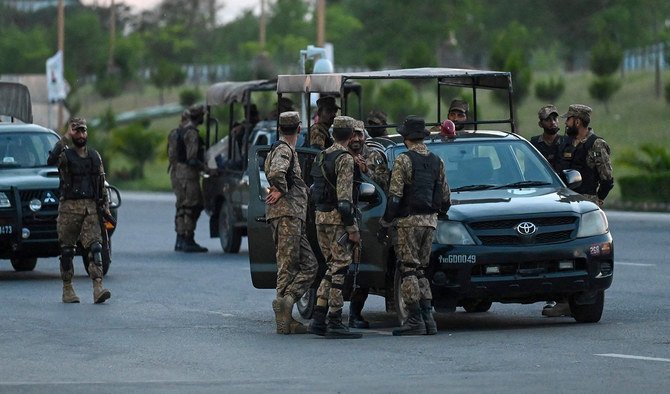Today, the federal government granted approval for the deployment of the Army nationwide to ensure security during the holy month of Muharram. The authorities in Sindh, Balochistan, Khyber Pakhtunkhwa, Islamabad, Gilgit-Baltistan, and Azad Jammu and Kashmir had requested military deployment to maintain law and order.
In response to these requests, the Centre, under Article 245 of the Constitution, authorized the deployment of army troops and civil armed forces to maintain peace during this sacred month. Muharram, which marks the beginning of the Islamic year 1445 AH, commences on July 20, with Youm-e-Ashura observed on July 29 (Saturday).
A notification from the interior ministry stated that the exact number of troops, date, and areas of deployment would be determined by the respective local authorities.
Read on: Iraqi protesters torch the Swedish Embassy
Aside from seeking army assistance, law enforcement agencies and local authorities have made comprehensive security arrangements to ensure a peaceful and incident-free month.
During Muharram, believers participate in large gatherings and processions nationwide, with major processions taking place on the 10th and 9th days of Muharram.
The request for military deployment came amid heightened concerns over the deteriorating law and order situation, particularly with an increase in terrorist activities in Khyber Pakhtunkhwa and Balochistan. Pakistan has consistently raised the issue of terrorist safe havens in Afghanistan and reminded the Taliban of their commitments in the Doha deal to prevent militant activities on their soil.
In response to the security situation, the top brass of the Pakistan Army was briefed on Monday during the 258th Corps Commanders’ Conference (CCC) held at GHQ, highlighting the impact of terrorist sanctuaries and access to advanced weaponry in neighboring countries.
Furthermore, in preparation for Muharram activities, the Government of Sindh has taken several measures under Section 144 of the CrPC. These include a ban on carrying arms and ammunition of all types for anyone except uniformed staff, police, rangers, and law enforcement agencies. Misuse of loudspeakers has also been prohibited, and individuals have been warned against displaying objectionable and provocative materials like posters, banners, leaflets, and wall chalking.
Additionally, cable transmission and VCRs have been banned in hotels and public places, and individuals are not allowed on rooftops of buildings or homes when a mourning procession is passing by. New mourning processions, rallies, majalis, and jalsa are banned without prior permission, and gatherings of more than five people are restricted, except for those participating in Muharram processions, majlis, and tazia.


